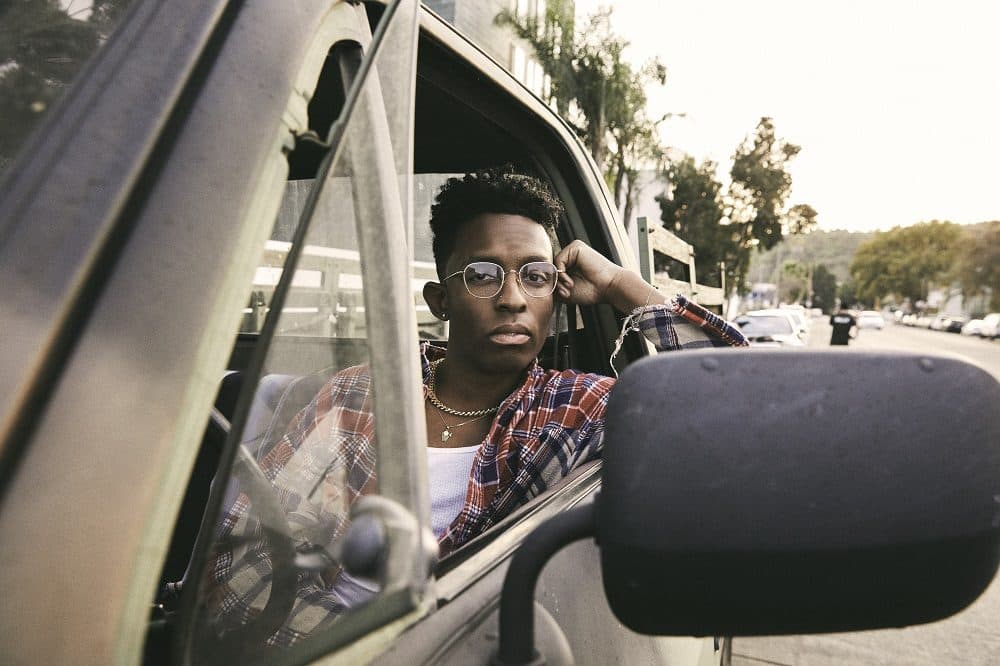Advertisement
You Can't Put Breland In A Box. Don’t Touch His Truck, Either
Resume
If you’re a country music fan who also listens to Drake or Doja Cat, Breland may be just right for you.
The 25-year-old singer-songwriter burst into the public consciousness this spring, just ahead of a pandemic and a wave of anti-racism protests, with the country trap single “My Truck.” Since then he’s situated himself out of traditional genre boxes, blending hip-hop, R&B, country, trap and pop elements on his debut EP.
Now he’s taking a stand with protesters on his newest EP, “Rage & Sorrow.”
The song that put the New Jersey native on the map, “My Truck,” is an homage to a southern staple — the truck, of course — that combines country elements with hip-hop production, and more than a touch of Breland’s own flair.
“You can drink my liquor, you can call my lady,” he sings, and the list goes on from there: take my money, scuff my Jordans, call me crazy — just “don’t touch my truck.”
He wrote the song on a quasi-dare from his friends, inspired by country-crossovers like “Old Town Road” by Lil Nas X and “The Git Up” by Blanco Brown, and it shot to the top of Spotify’s Viral 50 playlist this February.
Later that month, Breland released a music video featuring collaborator and country music star Sam Hunt. As the video opens, the camera lingers on Hunt, decked out in a wide-brimmed cowboy hat, until he’s abruptly shoved out of the frame by a grinning Breland in wire-rimmed glasses. It’s the kind of reversal of expectations Breland performs throughout the song.
“This song speaks to a new era” in country music, he says. “It’s just younger and fresher and different.”
The video started racking up views on YouTube, with over 24 million by early August, which confirmed Breland’s suspicions.
“[There’s] this underserved community of country listeners who also like hip-hop music and also like R&B and also like pop,” he says, “who aren't really married to any of the conventions or conservatism of some of the, you know, country music staples.”
But even as the song earned Breland a profile in Rolling Stone and made waves on TikTok, “My Truck” found little traction on traditional country music stations, which disappointed him.
“I understand it, though, because if you listen to country radio, it's a lot of artists that sound similar,” he says. That is, as he puts it, “white dudes over 40.”
In Breland’s world, country music is about telling stories that resonate with people. And anyone can write a country song.
“It really just comes down to the music,” he says. “And then whether or not people accept you.”
But for Breland, the issue of who belongs in country music has become only one thread of a bigger question: Who belongs in America?
His dizzying ascent on viral charts arrived just ahead of a major pandemic, where many Black Americans have worked essential jobs on the frontlines and faced immense loss of life and livelihoods. And when protests broke out over the death of George Floyd at the hands of police officers in Minneapolis, Breland didn’t hesitate. He wrote “A Message” the day after Floyd’s death, as part of “Rage & Sorrow.”
In just under a minute, Breland delivers a condemnation (“I’m pissed off, really pissed off… took all this for y’all to act like you care again?”) and a call to action: “Anybody can play a part in the revolution. You do it with your money, your ballot or your voice.”
Breland says he grasped the moment as a chance to define what he stands for as an up-and-coming artist. He also realized he has an opportunity to reach country fans, especially white fans, who might not view Floyd’s death, or the Black Lives Matter movement, through the same lens that he does.
“I just want people to be able to feel my pain, and I want people to be able to hear my passion,” he says. “And hopefully that'll cause some people to take on new perspectives.”
Not taking part in the movement would have been “disingenuous,” he adds.
“I wouldn't have been able to exist at this intersection of being Black and being in country music and not address it,” he says. “The moment was too powerful.”
Where “A Message” tackles rage, the album’s longest song, “Real Men Don’t Cry,” centers on sorrow. Breland wrote the song before the protests but drew a parallel between violent police killings and the emotional suppression that many men are taught to perform.
“Men are socialized to bottle up their emotions,” he says. “If they're going to have a negative emotion, it’s almost never going to present itself as sadness … Instead, we turn to anger and violence and rage.”
He released the song as a counterbalance to the anger in “A Message.” Controlled rage is a useful tool, he says, especially in protest, but it’s not enough.
“You have to find the time for further reflection and introspection,” he says. “And you have to allow yourself to feel something deeper than just anger.”
Francesca Paris produced and edited this interview for broadcast with Tinku Ray. Paris also adapted it for the web.
This segment aired on August 6, 2020.




